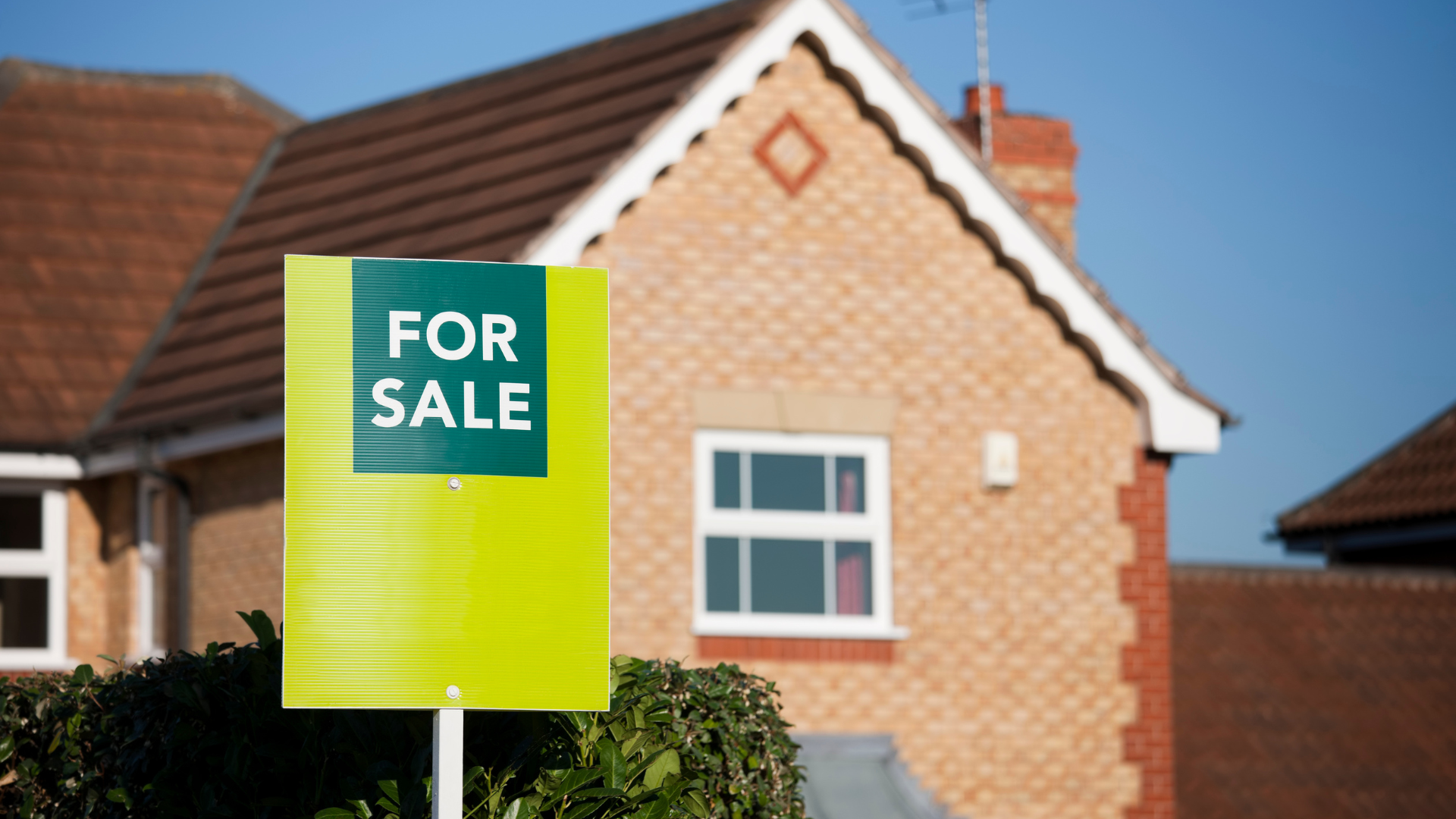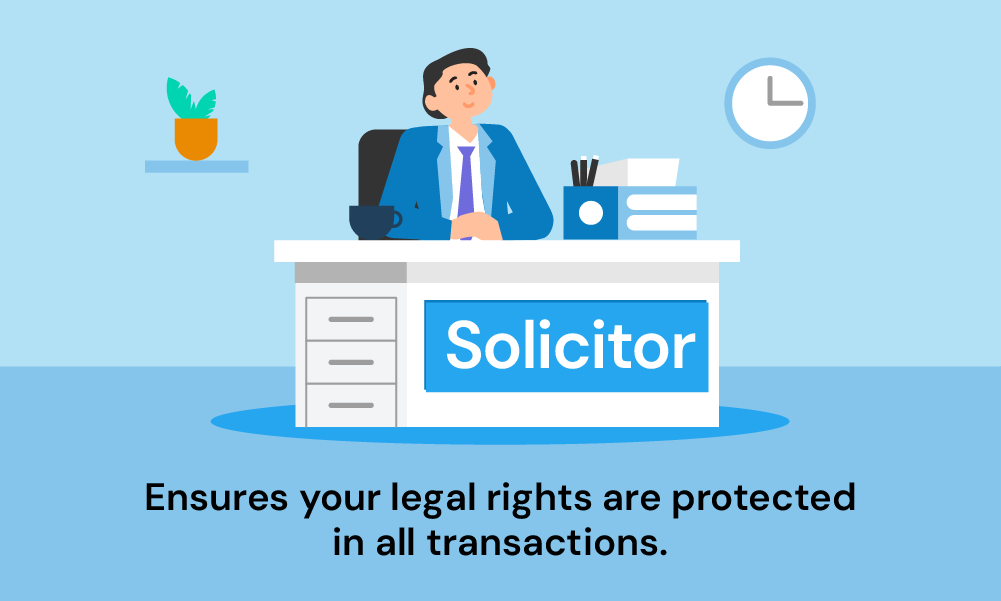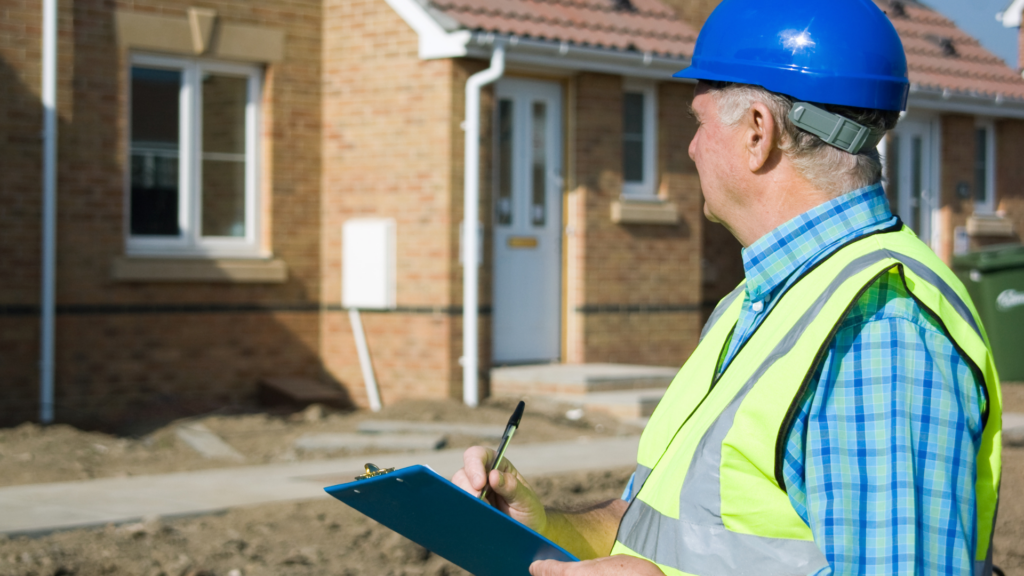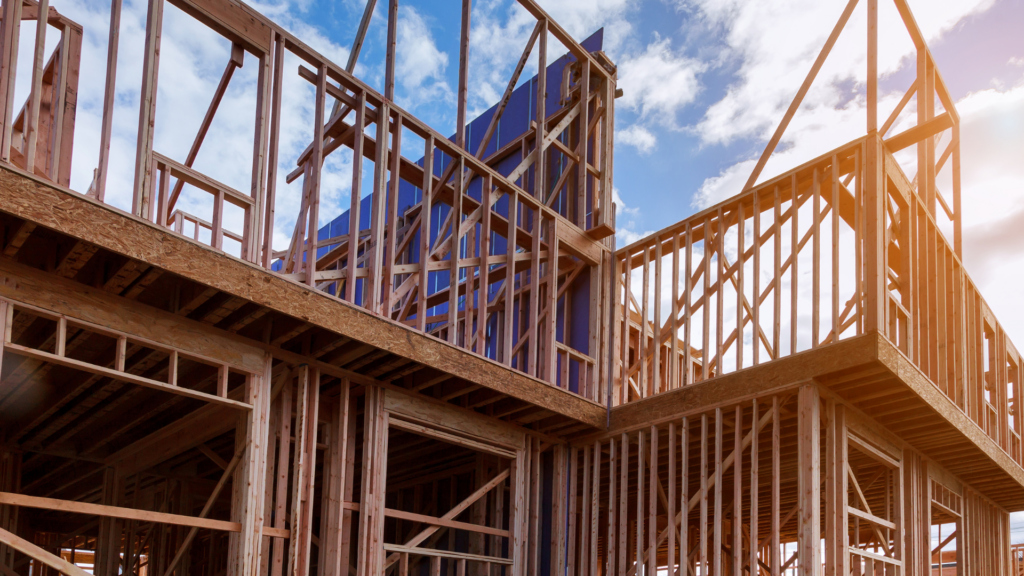- What Is a Repossessed House?
- How Do You Find Repossessed Properties?
- Why Are Repossessed Homes Cheaper?
- Can You Get a Mortgage to Buy a Repossessed House?
- Should You Buy at Auction or Through an Estate Agent?
- The Pros and Cons of Buying a Repossessed Property
- What You Should Do Before Buying a Repossessed Home
- Are There Any Risks Involved?
- How Long Does It Take to Buy a Repossessed House?
- Can I Get a Mortgage After a Repossession?
- Key Takeaways
- The Bottom Line: Is Buying a Repossessed Home Right for You?
Everything You Need Know About Buying a Repossessed House

If you’ve been wondering whether you can get a mortgage for a repossessed home, the answer is yes—but there are a few things to keep in mind.
Repossessed properties can be sold quickly, sometimes at auctions, which means you’ll need to be prepared.
But with the right mortgage or even a bridging loan, you could snap up a property at a great price.
Here’s everything you need to know to make buying a repossessed home a smooth process.
What Is a Repossessed House?
A repossessed house is one that the lender (usually a bank) has taken back from the owner because they couldn’t keep up with their mortgage payments.
This can be tough for the previous owner, but it could be a great opportunity for you.
The bank wants to get their money back and move on. This means they often sell quickly, which could mean a good deal for you.
These properties get marketed as part of house repossession sales or listed as house bank repossessions for sale.
How Do You Find Repossessed Properties?
Repossessed properties are not advertised like your typical house for sale, so you need to do a bit of searching.
One of the easiest ways is to keep an eye on property repossession sales through auctions.
Auctions are a popular way for lenders to offload repossessed homes—they’re quick, and it means they can hand over the keys ASAP.
You can also chat to estate agents. They might not advertise repossessed homes, but many agents have a list of bank repossessions waiting for buyers. We’ll cover this in more detail soon.
Why Are Repossessed Homes Cheaper?
The beauty of repossessed homes is that they often come at a discount. We’re talking as much as 20-30% off market value, which is pretty tempting.
But why is it so cheap? Because lenders’ primary goal is to recover the outstanding loan amount. They are not interested in maximising the property’s value or making a profit.
They also won’t spend money on fixing up the home. You might find old carpets and peeling walls.
This is where you need to think with both your head and your heart. It’s a good deal, but you might need to spend money on repairs like new taps, locks, and carpets.
Don’t let that put you off, though. The savings you get from the initial purchase might make it all worthwhile.
Can You Get a Mortgage to Buy a Repossessed House?
Yes, you can absolutely get a mortgage to buy a repossessed house—but there are a few things to keep in mind.
If you’re buying at auction, a traditional mortgage might not be fast enough, as you’ll need to pay within 28 days.
This is where a bridging loan can come in handy. Bridging loans are short-term loans designed to tide you over until you can arrange longer-term finance, like a mortgage.
If you’re buying through an estate agent, then a standard mortgage is typically fine.
Just bear in mind that lenders will still want to make sure you can afford the repayments—so they’ll check your credit score, income, and the deposit you have saved.
And speaking of deposits, having a larger one can sometimes help, especially if the property’s a bit of a fixer-upper.
Should You Buy at Auction or Through an Estate Agent?
There are two main ways to get your hands on a repossessed property—you can head to an auction, or you can go through an estate agent.
But how do you know which one is right for you? 🤔
Buying at Auction
Buying at auction is fast, exciting, and can be a bit nerve-wracking. You need to be fully prepared before you bid, as you’ll need to complete the sale in 28 days.
Auction properties are usually advertised for about a month. This gives you time to view the property and get your finances in order.
Many buyers use a bridging loan to help pay for the property. This is a good option because it’s faster than a traditional mortgage.
After you buy the property, you can switch to a traditional mortgage and pay off the loan. Here’s a typical list of what you need to need to prepare before you bid:
- Cash, a mortgage, or a bridging loan ready to complete the sale within 28 days.
- A 10% deposit to be paid immediately after winning the bid.
- Proof of identity and address for the auction registration process.
- Solicitor details to handle the legal work and contracts after the auction.
- Auction catalogue to review the property details and any legal information.
- Optional survey or valuation report to better understand the property’s condition (recommended but not required).
- Maximum bid limit set beforehand, so you don’t overspend in the heat of bidding.
Winning a bid is final—so be sure you’re confident before you start. Auctions are perfect if you want to grab a quick bargain, but remember, you’ll face competition since others are after a good deal too.
Buying Through an Estate Agent
Estate agents also handle repossession house sales in the UK, but they tend to do it a bit more quietly.
Often, repossessed properties aren’t openly advertised, so it pays to have a good relationship with your local agents. They’ll know when a repossessed house is coming onto the market and might give you a heads-up.
Buying through an agent can be a more relaxed affair compared to auctions, with less pressure to have all your finances sorted on the spot.
The Pros and Cons of Buying a Repossessed Property
Buying a repossessed property can be a great way to save money, but it comes with some challenges.
You might get a bargain, but there are things you should think about before deciding. We’ve listed the main pros and cons to help you choose wisely.
Pros:
- Discounted Price: You could buy a home for 20-30% less than its market value, helping you get more for your money.
- Fast Sale: Lenders are keen to sell quickly, often through auctions, which speeds up the buying process.
- No Property Chain: You’re buying directly from the lender, meaning no waiting for a seller to find their next home. This makes the process quicker and less stressful.
Cons:
- High Competition: Repossessed properties are a hot ticket item. If you’re bidding at auction, you’re likely to face stiff competition from property investors and developers.
- Poor Condition: There’s a good chance the property won’t be in the best shape. When a home gets repossessed, the previous owner might not have been too motivated to keep everything in tip-top condition.
- Hidden Costs: Sometimes, you’ll have to reconnect utilities or deal with a few unexpected surprises—like the garden shed collapsing in the wind. Always set aside a bit of budget for repairs.
- Auction Risks: If purchasing at auction, there is a risk of overpaying or facing unexpected costs.
What You Should Do Before Buying a Repossessed Home
If you’ve found a repossessed home for a good deal, hold on for a moment. Before you buy it, do these things to make sure it’s the right choice:
Do a Thorough Property Check
Repossessed homes aren’t always treated with love and care by their previous owners. Before you buy, make sure to inspect the property thoroughly. Better yet, get a proper survey done.
You don’t want to be dealing with hidden damp, structural issues, or rot after moving in.
Remember, any repairs will be coming out of your pocket—so make sure you know what you’re getting into.
Make Sure All the Legal Boxes Are Ticked
Before you buy, make sure there are no legal issues hanging over the property. This could include building regulations that weren’t followed or planning permissions that weren’t obtained.
The last thing you want is to find out that beautiful extension on the back of the house was built without permission. Get a solicitor involved to check everything’s above board.

Are There Any Risks Involved?
Of course, buying a repossessed property isn’t all sunshine and rainbows. There are a few potential pitfalls you’ll need to watch out for:
- Gazumping. This is when another buyer swoops in with a higher offer after you’ve had your bid accepted. It’s more common when buying through an estate agent, as the lender’s main goal is to get the highest price possible.
- Previous Owner Debts. While the debts should stay with the previous owner, it’s always a good idea to keep an eye on your credit report for a few months after buying a repossessed home—just in case anything fishy pops up.
- Unseen Damage. Sometimes repossessed homes haven’t been well looked after. Damp, rot, or structural issues can crop up, so it’s worth getting a thorough survey done to avoid any nasty surprises.
- Planning or Building Control Issues. The previous owner may have made changes to the property without the right permissions. Make sure any work meets building regulations to avoid future problems.
- Restriction Breaches. The previous owner might have broken property restrictions, such as planning rules. Do your checks to avoid getting caught out.
- Utility and Service Issues. Sometimes utilities like electricity or water are disconnected in repossessed homes. Check the status before you buy, as you might need to pay to reconnect them.
How Long Does It Take to Buy a Repossessed House?
If you’re buying at auction, you’re looking at a 28-day turnaround to complete the sale. Through an estate agent, it might take a bit longer, but still generally quicker than a standard house purchase since there’s no chain to deal with.
From winning a bid to picking up the keys, you could be all moved in before you know it—just be prepared for a bit of hard work to make the place your own.
Can I Get a Mortgage After a Repossession?
Yes, you might be able to get a mortgage after a repossession, but it won’t be as easy as a regular mortgage. The good news is, lenders are willing to give you another chance.
But, they will take a closer look at your financial history before making a decision. Here are a few key things they check before approving your mortgage:
- Time Since the Repossession. The longer it’s been since your repossession, the better your chances. If more than 6 years have passed, some lenders might not even count it. If it’s more recent, you may need to find a specialist lender who deals with bad credit.
- Reason for Repossession. Lenders will want to know why the repossession happened. Was it due to something temporary, like losing a job or illness? If you can show it was a one-off problem and that your finances are back on track, they’ll be more understanding.
- Outstanding Debt (Legacy Payments). If you still owe money from the repossession, this could be a problem. Most lenders won’t approve a new mortgage until that debt is settled, so it’s important to clear it before applying.
- The Amount Involved in the Repossession. If the repossession involved a large amount of money, it could make things more difficult. But if the amount was smaller, you’re more likely to find lenders offering decent rates.
- Current Credit Score. Your credit score is important. Lenders want to see how you’ve managed your finances since the repossession. If you’ve kept up with payments and improved your score, you’ll have a better chance. If you’re still struggling, it might help to work on improving your credit before applying.
- Current Financial Situation. Lenders will look at how you’re managing your money now. Are your debts under control? Are you paying your bills on time? Showing you’re financially responsible will reassure lenders you’re in a better place.
- Other Credit Issues. If you’ve had other credit problems, such as missed payments or bankruptcy, these could affect your chances too. It’s worth speaking to a mortgage broker who can help find the best options for you.
- Deposit Size. Lenders often ask for a larger deposit if you’ve had bad credit—usually between 15-30% of the property’s value. The bigger the deposit, the better your chances of approval. It might also help you get a lower interest rate.
Key Takeaways
- Repossessed homes are properties taken by lenders due to unpaid mortgages. They are sold quickly, often through auctions, at a discount of up to 20-30%.
- You can buy repossessed properties at auctions (requires payment within 28 days) or through estate agents (a more relaxed process).
- Mortgages are available for repossessed homes, but if buying at auction, a bridging loan may be needed for faster payment.
- Benefits include discounted prices, fast sales, and no property chain. Challenges include competition, potential repairs, and hidden costs. Always inspect the property and check for legal issues before buying.
The Bottom Line: Is Buying a Repossessed Home Right for You?
Buying a repossessed house can be a brilliant opportunity to get more bang for your buck.
It’s not without its challenges, though—high competition, potential repair costs, and the risk of getting gazumped are all part of the deal.
But if you’re prepared to roll up your sleeves and put in a bit of effort, you could end up with a fantastic home at a fraction of the cost.
If you’re interested in buying a house repossession, remember to do your homework, get your finances sorted, and don’t be afraid to ask for help from the experts.
Getting advice from a qualified mortgage broker can make a big difference. Reach out to us and we’ll match you with a good mortgage broker who can help you find the best mortgage deal to buy your dream home.
Get Matched With Your Dream Mortgage Advisor...

Frequently asked questions
What are the different types of financing available for repossessed homes?
Besides cash, bridging loans, or a traditional mortgage, you have other choices:
- Development Finance
- Remortgage another property you own to release equity and use it to buy the repossessed home.
- Personal Loans for smaller amounts (interest rates are usually higher).
Talk to a mortgage broker to find the best option for you.
Does buying a repossessed house impact my credit score?
No, buying a repossessed home won’t affect your credit score directly. However, if you apply for a mortgage, your credit score will be checked by lenders.
Are repossessed homes generally fixer-uppers?
Not always. While some repossessed properties may need repairs due to neglect, many are in good condition. It depends on how the previous owners maintained the home. It’s important to get a survey to assess the condition and any potential repair costs before buying.
Can first time buyers buy a repossessed house and how?
Yes, first-time buyers can buy a repossessed house. The process is similar to buying any other property. You’ll need your finances ready, including a mortgage in principle, and be prepared to act quickly if buying at auction.
Do your research, get a survey, and ensure you fully understand the condition of the property before committing.
Is buying a repossessed house a good investment?
It can be a good investment if you get it below market value and are prepared for repairs. Make sure you factor in renovation and legal costs to determine if it’s worth it.
How many missed payments before house repossession in the UK?
Repossession typically starts after three to six months of missed mortgage payments. Lenders must give you the chance to resolve the issue before starting the repossession process.




